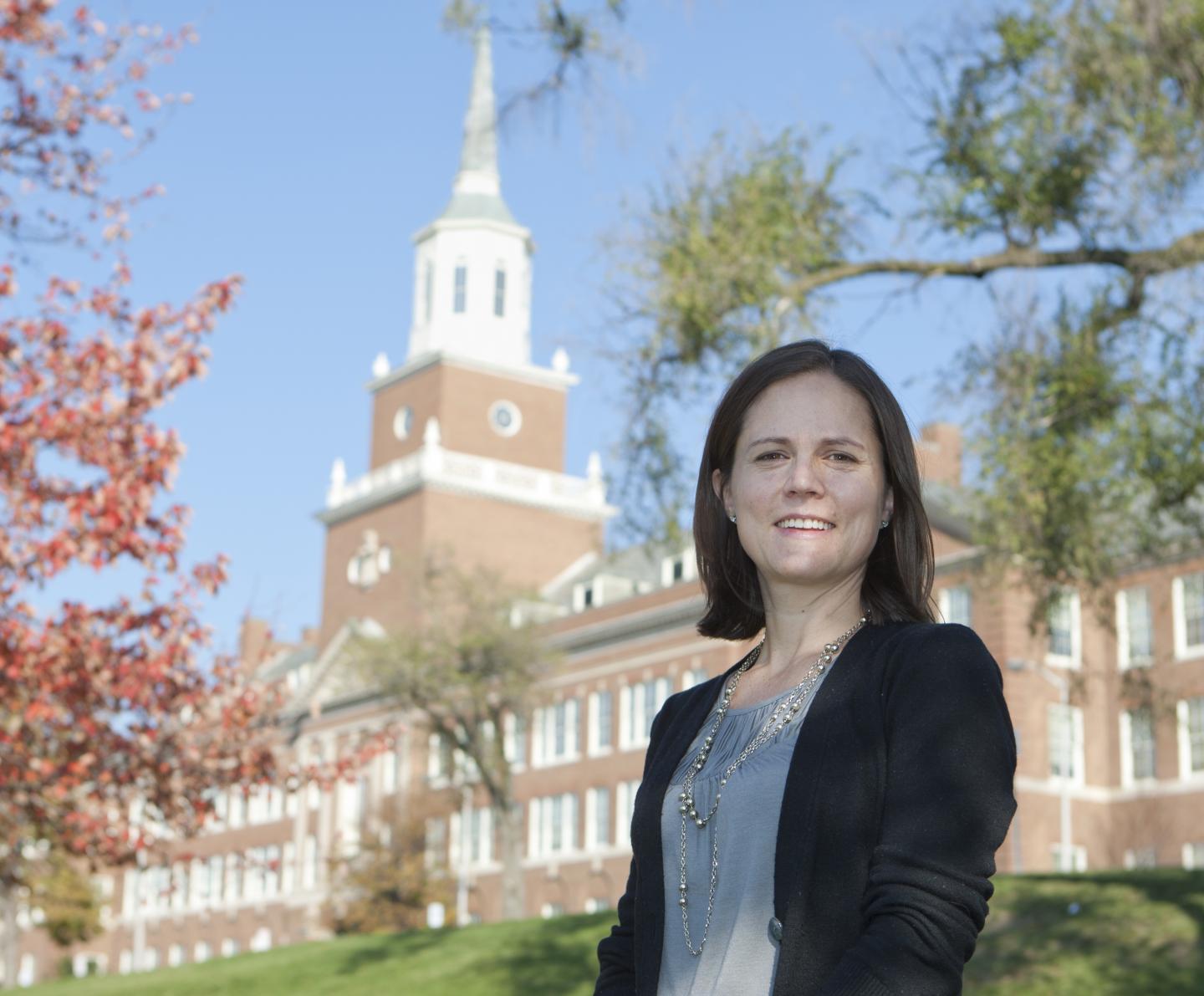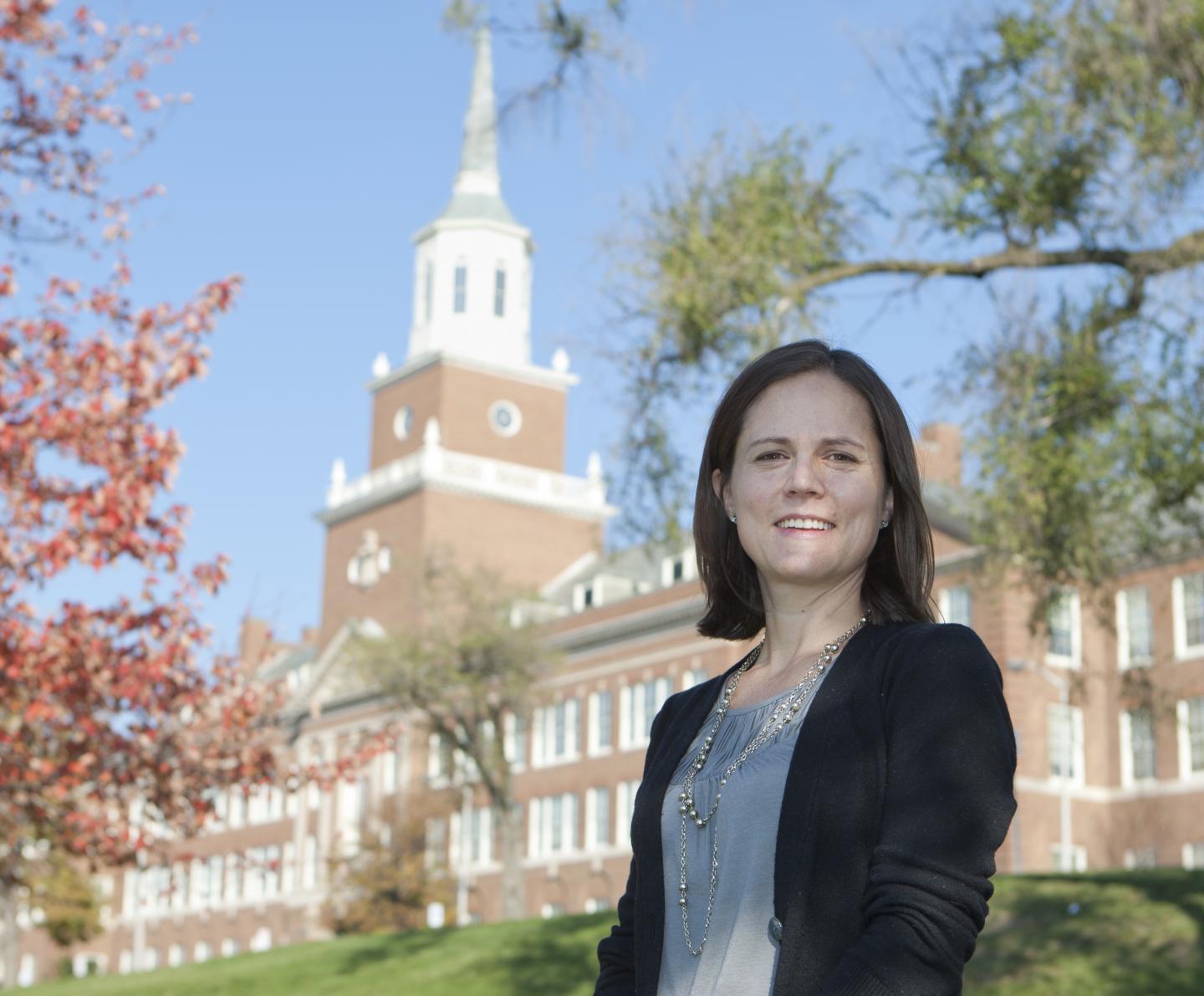
Although the recent U.S. Supreme Court ruling to legalize same-sex marriage was a victory for the gay community, same-sex couples continue to face challenges such as discrimination, stigma and lack of role models for their long-term relationships and marriages. Furthermore, same-sex female couples suffer breakups more often and more quickly than heterosexual couples. To help address these disparities, psychology researchers are testing a relationship education program to address the unique needs of female same-sex couples. Sarah Whitton, a University of Cincinnati associate professor of psychology, will lead a presentation as part of a Nov. 13 symposium at the Association for Behavioral and Cognitive Therapies (ABCT) 49th Annual Convention in Chicago.
Relationship education programs for heterosexual couples have shown effectiveness in improving relationships and their stability. However, the researchers explain that these programs contain considerable heterosexual bias and fail to address challenges for same-sex couples, such as discrimination and lack of social support, most notably lack of support from their own families.
The researchers developed the relationship education program around proven strategies to build core relationship skills, including effective couple communications – such as keeping conflicts from escalating into destructive confrontations. To help participating couples learn these skills, videos were developed in which female same-sex couples demonstrated negative, destructive encounters as well as positive, effective communication techniques.
Whitton says the program also includes newly developed material to address the unique needs of female same-sex couples. Couples are taught coping strategies for facing stigma and other issues that could impact the quality of their relationships, including issues surrounding children.
"Female same-sex couples also face issues we hadn't found in our previous research in building such a program for male same-sex couples," Whitton says "Child-related issues were prevalent, as some women had children from a previous heterosexual relationship and others were deciding as a couple how to create families through adoption or donor insemination.
"Another factor affecting female same-sex couples was an interest in maintaining emotional intimacy and being able to communicate about emotionally vulnerable topics," Whitton says. "Therefore, the program teaches women strategies for protecting and enhancing their emotional connection.
"We also developed the program around how women could build social support for their relationship," says Whitton. "This is one area where same-sex couples face far more challenges than heterosexual couples, because typically they don't have church support and they may not have family support for their relationship."
The 10-hour program was tested on 38 couples in the Cincinnati and Denver area and required one six-hour session and two, 2-hour evening sessions. The program involved a lecture, the skill demonstration videos, practicing new skills with feedback from coaches, and group discussion.
At the end of the program, the researchers report that participating couples showed improvements in their positive communication skills and satisfaction with their relationships, compared to couples in a wait list control group.
Whitton says future research will involve testing the program on a larger number of couples and more evaluation of the program's effectiveness over time. "We're also interested in packaging the program and in reaching out to community clinicians, particularly those who work with the LGBT community, to see if they would be interested in using the program and if they can do so effectively."
Whitton adds that the researchers also want to explore whether the program's effectiveness might also help reduce physical health disparities affecting lesbian women, including higher rates of cancer, heart disease, smoking and obesity.
###
Funding for the study was supported by the Lesbian Health Fund, a program of the Gay and Lesbian Medical Association.
Whitton and other project contributors will be presenting at the conference as part of a symposium titled, "Same-Sex Couples and Health: Translational Research that Spans Basic Science Discovery to Efficacy Trials of Couples-Based Interventions." Other contributors on the project are Shelby Scott, a doctoral student of psychology at the University of Denver; Eliza Weitbrecht, David Hutsell and Amanda Kuryluk, all doctoral students of psychology UC.
Whitton had previously presented on an education relationship program for same-sex male couples at a 2012 ABCT Convention.
The Association for Behavioral and Cognitive Therapies is a multidisciplinary organization committed to the advancement of scientific approaches to the understanding and improvement of human functioning through the investigation and application of behavioral, cognitive and other evidence-based principles to the assessment, prevention, treatment of human problems and the enhancement of health and well-being.
UC's Department of Psychology in the McMicken College of Arts and Sciences is recognized nationally for the quality of its undergraduate major and the excellence of its graduate training programs in clinical and experimental psychology.





